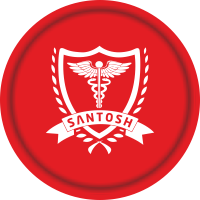Department of Emergency and Trauma Care
Department of Emergency and Trauma Care
Our hospital's Emergency and Trauma Care department in Ghaziabad, India is renowned for its exceptional response to life threatening cases such as heart attacks, strokes, and accidents. We take pride in our ability to provide the fastest and most effective care in critical situations. Our team of dedicated doctors works tirelessly around the clock, equipped with the necessary expertise to manage any emergency or critical care scenario.
The department is equipped with state-of-the-art, life-saving equipment that incorporates cutting-edge technology. Our highly trained medical and paramedical staff ensures the efficient operation of these resources. Additionally, we have cardiovascular life-support ambulances that are supervised by skilled doctors and nurses. This allows us to deliver proper care to patients even while en route to the hospital, maximizing their chances of survival.
At our facility, we uphold international standards of healthcare, boasting high success rates in treatment and care. We offer access to modern operation theaters that are equipped with the latest equipment, advanced imaging, and diagnostic centers, and a 24-hour pharmacy. Our Intensive Care Unit is staffed by a multidisciplinary team of experts, providing round-the-clock monitoring and care for patients with failed or dysfunctional organ systems.
For patients high-risk injuries, our world-class trauma team delivers prompt and comprehensive care. Our highly skilled doctors conduct initial assessments and perform relevant diagnostic examinations. Patients in need of urgent surgical intervention are swiftly moved to our surgical suites, where our efficient doctors ensure timely critical care and continuous monitoring. Through our expertise and dedication, we strive to facilitate the speedy recovery of our patients.
In summary, our Emergency and Trauma Care department is recognized for its unmatched reputation, efficient response, advanced technology, and expert medical staff. We are committed to upholding international standards of healthcare and providing exceptional care to patients in critical and emergency situations.

FAQs
Clearing your doubts
In case of a medical emergency, it is important to stay calm and call for immediate medical assistance, such as emergency medical services or an ambulance. Provide clear and accurate information about the situation and follow any instructions given by the dispatcher. If it is safe to do so, provide basic first aid or CPR until help arrives. Remember, quick action and timely medical intervention can significantly improve outcomes in emergencies.
Patients in the Emergency Department are typically prioritized based on the severity of their condition. This process is known as triage. A trained healthcare professional will assess each patient's vital signs, symptoms, and medical history to determine the level of urgency. Patients with life-threatening conditions, such as severe trauma, chest pain, or difficulty breathing, are given the highest priority for immediate attention and intervention.
In an emergency, medical care is provided regardless of a patient's ability to pay or insurance status. The Emergency Medical Treatment and Labor Act (EMTALA) ensures that hospitals with Emergency Departments must provide stabilizing treatment to individuals in emergencies. However, it is important to note that receiving emergency care may result in medical expenses, and hospitals may later work with patients to establish a payment plan or assist with insurance coverage if applicable.
After receiving initial stabilization and treatment in the Emergency Department, the medical team will assess the patient's condition and determine the next steps. Depending on the severity of the condition, the patient may be admitted to the hospital for further care, referred to a specialist, or discharged with appropriate instructions for follow-up care. The medical staff will provide information on any necessary medications, recommended rest or activity restrictions, and instructions for seeking additional care if needed.


.png)






